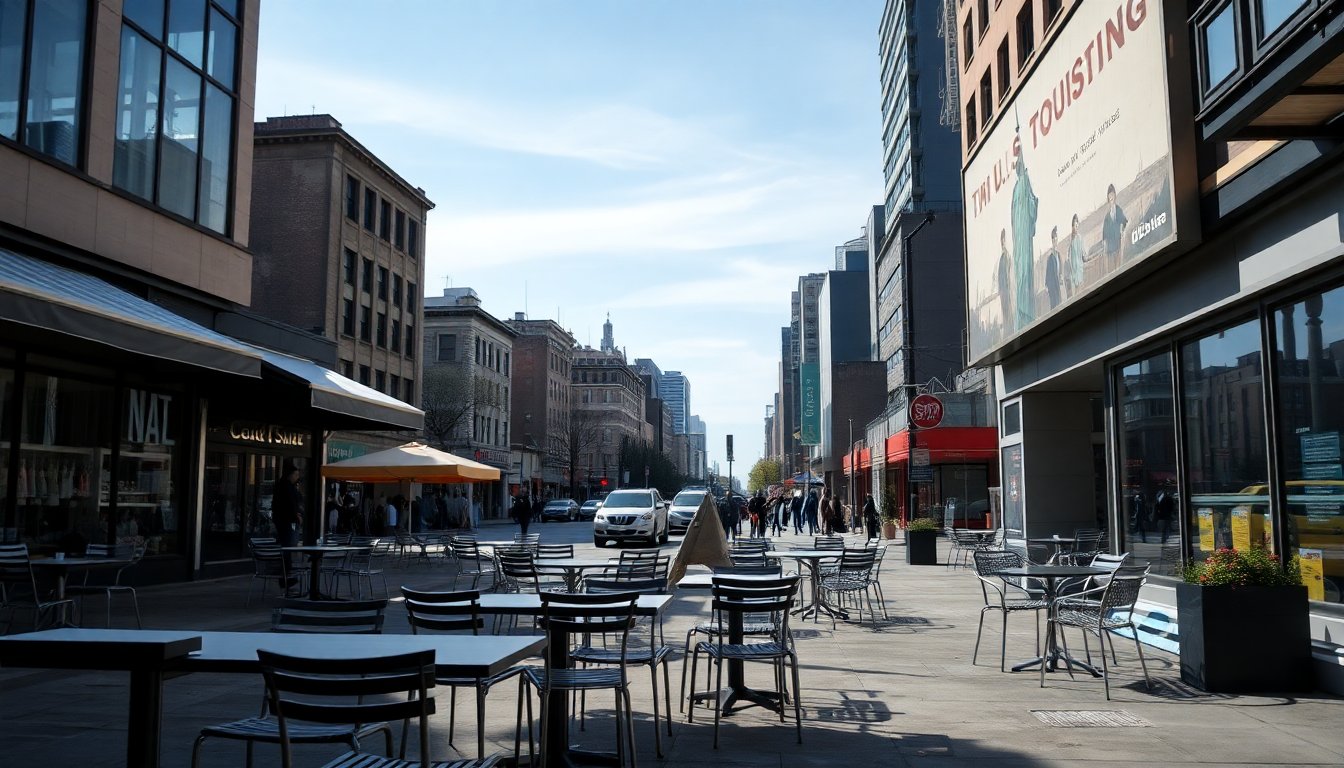Table of Contents
The relationship between Canada and the United States has long been characterized by strong ties, particularly in tourism. However, recent developments have led to a significant decline in Canadian visits to the U.S., adversely affecting the American economy. According to a report from the U.S. Travel Association, international tourism spending in the U.S. is projected to drop by 3.2% in 2025, resulting in a loss of $5.7 billion USD.
This downturn is primarily attributed to the decreasing number of Canadian tourists, a trend that intensified following the return of former President Donald Trump to office. His administration’s controversial statements and policies have ignited a trade war that has left many Canadians feeling unwelcome. Consequently, there has been a notable reduction in travel across air and land borders, with air travel decreasing by 27% and automobile trips dropping by 35%.
The facts
Historically, Canadians have accounted for the largest share of international visitors to the United States, representing 28% of the 72.4 million visitors in 2025. The ongoing decline in tourist numbers poses a serious concern not only for businesses reliant on tourism but also for job markets in states dependent on this sector. Usha Haley, a management professor at Wichita State University, emphasizes the significant impact, stating, “The tourism sector is labor-intensive and a significant employer in many states.”
Job losses and economic ripple effects
Haley warns that decreasing tourism revenue could lead to thousands of job losses, triggering a ripple effect throughout local economies. For example, lower hotel occupancy rates may reduce labor demand, consequently affecting tax revenues that are crucial for municipal finances. This cycle of economic decline can have enduring effects on communities reliant on the steady influx of Canadian tourists.
Despite these issues, Trump has expressed optimism about improving relations with Canada, asserting that there is still “great love” between the two nations. However, his administration’s actions continue to exacerbate tensions, as illustrated by the abrupt cessation of trade negotiations following an anti-tariff advertisement from the Ontario government. Additionally, Trump’s administration has threatened to impose further tariffs on Canadian goods, justifying these measures as necessary to address a perceived trade deficit.
Canadians respond with travel alternatives
Amid these political and economic tensions, many Canadians are choosing to vacation elsewhere. Snowbird Rena Hans from Toronto, who owns a condo in Florida, has stated she will not visit the U.S. until Trump is out of office. “I won’t support a country whose president aims to annex my homeland and has imposed significant trade barriers,” Hans remarked. Instead, she plans to travel to destinations such as Costa Rica and Turks and Caicos, highlighting the variety of travel options available.
Public sentiment towards U.S. travel
A recent Angus Reid poll supports Hans’s views, indicating that 70% of Canadians surveyed are hesitant about traveling to the U.S. this winter. Major reasons for this reluctance include a desire to uphold Canadian sovereignty, the current political climate in the U.S., and increased security concerns stemming from Trump’s immigration policies. Furthermore, the introduction of a new registration requirement for long-term travelers has increased apprehension regarding U.S. travel.
This registration rule mandates that Canadians planning to stay longer than 29 days in the U.S. must register with the government, which involves being photographed and fingerprinted, along with a fee. Many perceive this requirement as intrusive and unwelcoming, particularly older travelers who frequently spend extended periods in Florida.
Efforts to revive Canadian tourism
In response to these challenges, U.S. states bordering Canada, such as New York and Montana, have begun launching campaigns to attract Canadian tourists back. For example, Discover Kalispell, a tourism organization in Montana, has implemented the Canadian Welcome Pass, offering discounts at various local businesses to entice travelers. This initiative responds to a 39% decline in credit card spending by international visitors.
Local businesses, including My Place Hotel in Kalispell, report a 40% decrease in Canadian clientele. The general manager, Bryce Baker, views this discount program as a way to express gratitude to Canadians who continue to visit, stating, “We want to ensure they know we appreciate them.”
This downturn is primarily attributed to the decreasing number of Canadian tourists, a trend that intensified following the return of former President Donald Trump to office. His administration’s controversial statements and policies have ignited a trade war that has left many Canadians feeling unwelcome. Consequently, there has been a notable reduction in travel across air and land borders, with air travel decreasing by 27% and automobile trips dropping by 35%.0


